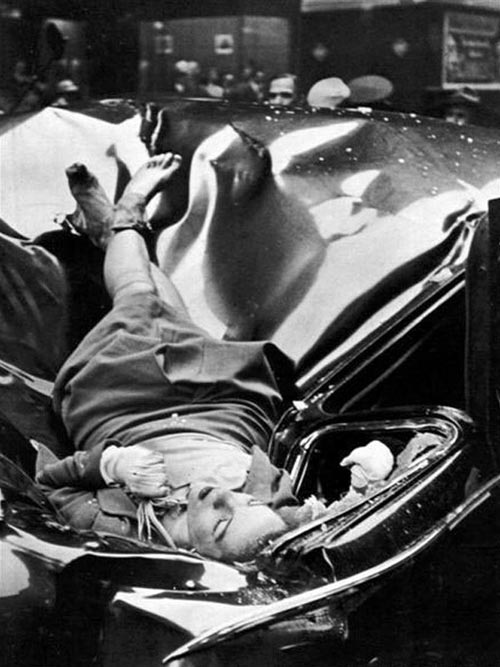Note: Kurt Luedtke’s tongue-in-cheek essay explaining why not to visit Leelanau first appeared in the AAA Michigan travel magazine in 1987, couple of years after we purchased Sleeping Bare (our lake home). This was reprinted in the Leelanau Enterprise this week.
I use to have the original, glad to have found this...
Pretty well sums it all up for us.
Here are some reasons you may not want to come to Leelanau County:
- It’s out of your way. No matter where you are going, Leelanau County is not on the way unless you are in Leelanau County already, in which case you must either go back the way you came or get seriously wet. This has to do with the nature of peninsulas and there is nothing to be done about it.
- There is no place to stay. In Leelanau County, there are no TravLodges, Best Westerns, Howard Johnsons or Marriotts, or Sheraton, Red Roof, Ramada or Holiday Inns. There are some rooms, lodges, cottages, motels and resorts but none of them has miniature golf or pillow mints. There is a miniature golf in Glen Arbor, next to the flower shop, but the porcupines have gotten at the front nine. There is a motel in Cadillac which has a Polynesian dining room but Cadillac is not in Leelanau County.re d’ a
- There is no place to eat. In Leelanau County there are no McDonalds, Big Boys, Burger Kings, Taco Bell or Kentucky Frieds. There is a good hamburger at Joe’s Friendly Tavern in Empire, but no Joe; hamburger at Art’s Bar in Glen Arbor, but no Art. Joe’s and Art’s are owned by Mike who is usually out of sweet vermouth at both places
(note : update, Joe’s now simply “The Friendly” and no longer owned by Mike, nor is Art’s which is now owned by Tim Barr aka T-i-m-b-e-r)
There is good food at the Leelanau Country Inn, but it is not expensive and some of the waitresses are married. (Country Inn is now North) LaBecasse sometimes has the best chocolate mousse in America, depending on who did the desserts that day, but the rest of the food is so terrific, why’s the maitre d’ a lawyer? The Epicure in Suttons Bay has ambition, elan, imagination and often a chef but does not sell stuffed animals or maintain a parking lot. The Glen Lake Inn is not on Glen Lake.
The Bluebird in Leland has cinnamon rolls, but you cannot have as many as you want even if you pay extra for them. Also smelt, which is favored by the sort of people who like to eat little dead fish with their fingers. Also waitresses. The Leland Lodge has a deck, a view and Special Events, some of them friends of mine. There are places to eat in Northport but nobody goes there. The best restaurant in northern Michigan is Tapawingo, near Ellsworth, and Leelanau County is not on the way to it.
- There is nothing to do. There are no bowling alleys, roller rinks, shopping malls, driving ranges, discotheques, public pools, presidential museums or large monuments in Leelanau County. There are some video games, but not the good ones. There is a movie house but it has no matinees. There is cable television some places but mostly not. Molly Weeks has a bookstore in Glen Arbor (note : now Cottage Bookstore – Barb Siepker), and Prudy has one in Leland but all they have are books. The Indians run a poker game near Peshawbestown (now Leelanau Sands Casino) if you like playing poker with people who are looking to get even. The celebrated poet Jim Harrison has a house off M-204 but if you come on his property, he will set the dogs on you. (Jim has now moved to Montana, to be closer to family). Some people hunt, fish, ski, sail, swim, golf, hike, hang-glide, canoe, windsurf, para-sail, jet-ski, shoot skeet and trap, play tennis, croquet and lawn bowl, principally because there is nothing to do indoors. There is a National Lakeshore (Sleeping Bear) if you like that sort of thing.
Also, there are deer in Leelanau County and it is a rite of passage among them to leap gaily over your car as you pass by. These deer are not smart: thus far non of them has made it. For general understanding of what happens when a deer falls short, drop a hundred pound sack of cement from an overpass on a poultry truck.
Also there is an undertow. For complex geological reasons, the waters of Leelanau County are uniquely vulnerable to a most violent undertow which strikes without warning even on the calmest days and against which struggle is impossible.
Frankly, I don’t see the point of going out of your way to get to a place where you can’t even swim, but suit yourself. The whitefish is good almost anywhere. Unless you are a scardy-cat about PCBs.
Kurt Lentke would hole himself up at his summer place at the Homestead Resort and write screenplays … like Out of Africa, and Absense of Malice. Occasional visitor was Sidney Pollack, among others.

 Sources:
Sources: 





